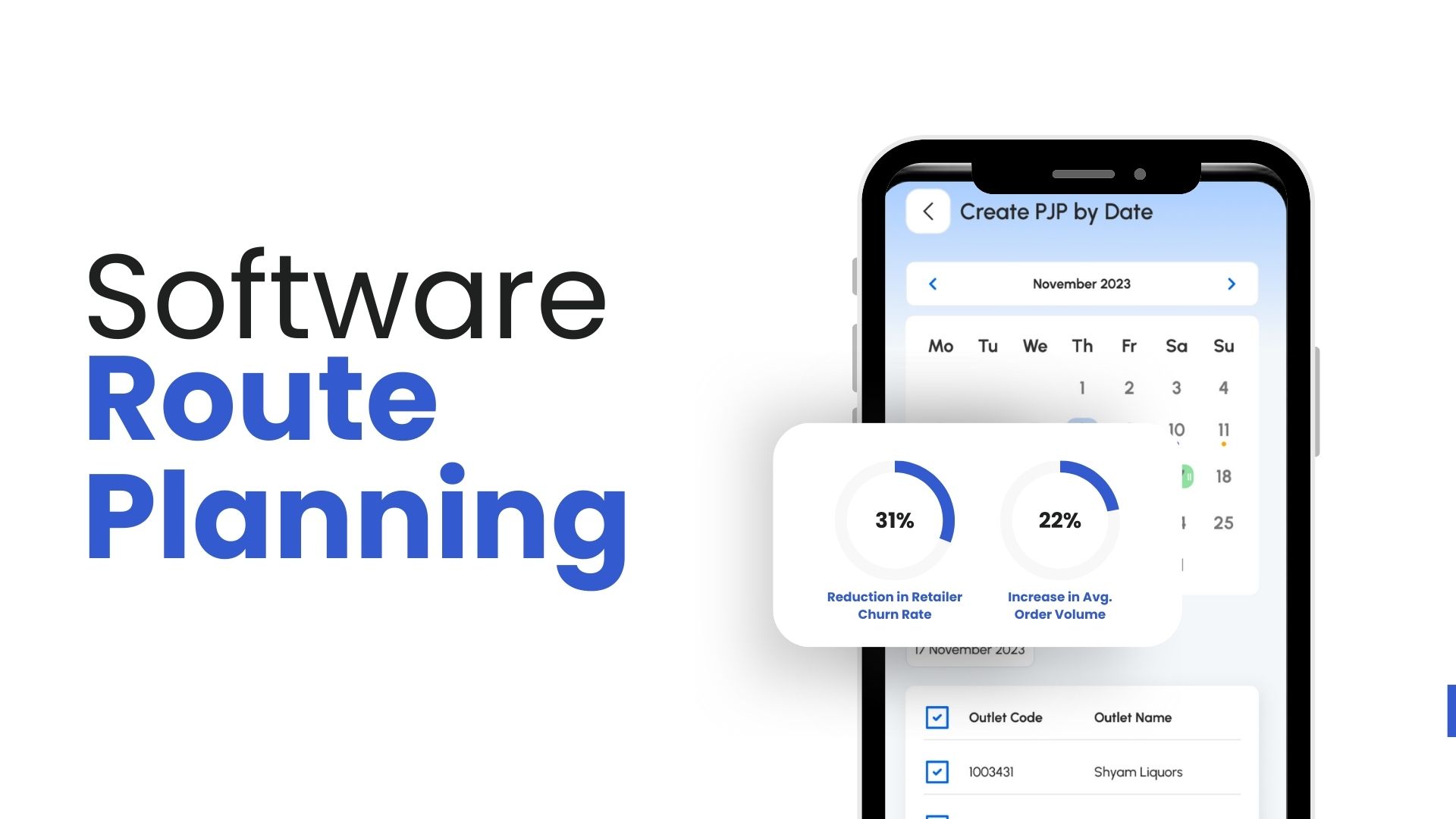If you assess the growth and success of any company falling under the B2B landscape, you will realize that growth heavily relies on the effectiveness of the field teams. They act as the brand ambassadors, solution providers, and deal closers for every B2B company.
Field force automation (FFA) has revolutionized business operations, especially in the B2B sector. From streamlining field operations to enhancing productivity, introducing a well-organized FFA solution equips the field teams to meet their objectives.
If you are considering implementing Field Force Automation solutions for your B2B Field Teams, being aware of the individual benefits is mandatory.
What is Field Force Automation?
Before discussing the benefits, let's define Field Force Automation. It is a software solution designed to automate various aspects of B2B field operations.
It blends mobile technology, cloud computing, and data analytics to empower and equip field teams with the tools they need to excel and grow in the salient fields. Some of the common features of the automation software include:
Mobile CRM: This provides the users direct access to real-time customer data that includes contact information, order history, and past interactions, enabling personalized B2B interactions.
Task Management: Field teams are constantly on the go, and a large part of their assignments involve appointments and service calls. With automated software, the teams can prioritize on-schedule completion and time management.
Real-Time Reporting: The main aspect of any FFA is that it enables real-time data collection on customer interactions, inventory levels, and service performance, which enables users to make informed decisions.
What are the Benefits of Field Force Automation for B2B Field Teams?
The successful implementation of a robust FFA solution can proactively improve two things – Performance and Effectiveness of the B2B fields team.
Following are a few benefits to keep in mind:
1. Improving Productivity and Efficiency
One of the primary benefits of FFA solutions is the automation of routine tasks. These tasks involve varying scheduling, route planning, reporting, and data entry. When these routine tasks are automated, it becomes easier for the field teams to focus more on their core responsibilities, like interacting with clients in real time, improving efficiency with their work, closing more deals, etc.
Automated scheduling and route planning ensure that field representatives spend less time on the road and more time with customers, leading to higher productivity.
2. Minimizing Manual Errors
Manual data entry is prone to errors, whether small or big. In the B2B sector, even the tiniest error can result in a significant consequence. FFA solutions eliminate the need for manual data entry by automating the entire process. Beyond eliminating the risks of errors, it also ensures that the entered data is accurate and reliable.
The availability and presentation of accurate data are quintessential in enabling the field teams to make accurate decisions and maintain the integrity of the business and their work.
3. Improved Customer Satisfaction
When the field team works proficiently, it directly affects customer satisfaction. Elements like faster response times and personalized customer interactions are the cornerstones of every good field sales automation solution. When customers feel that their concerns are addressed promptly, their trust in the business increases.
FFA also helps with proactive service delivery by providing the necessary tools to help with predictive maintenance and service scheduling. For example, FFA solutions can analyze equipment data to predict when maintenance is needed, allowing field teams to address issues before they become critical.
4. Cost Savings
Another one of the important benefits of field team automation is that it comes with cost savings. The first element comes with reduced operational costs. Automated scheduling and route planning reduce travel expenses, while real-time data access minimizes the need for costly back-office support. Beyond cost-cutting in the right places, a well-automated field force solution contributes to better revenue and sales.
With this automation software, businesses have detailed information about field operations, which enables them to allocate resources more effectively. With data driven resource allocation, it directly reflects on the efficiency of the field team, ensuring that the members in the field team aren’t underutilized or overburdened.
5. Enhanced Collaboration
FFA solutions facilitate seamless communication between field teams and the office using real-time data sharing and communication tools. With round-the-clock connectivity, the field teams have the constant backing and support they need to perform efficiently. Comprehensive FFA solutions like 1Channel also have built-in collaboration tools enabling teams to work together.
Good FFA solutions centralize the information, making it easily accessible to the stakeholders. This ensures that everyone in the team is accessing the same data set, thereby reducing miscommunication and discrepancies.
6. Adapting to Business Growth
The sign of success for a B2B firm lies in its transient growth and transformation over time. As businesses grow, field operations become more complex. FFA solutions are designed to grow and scale with the business, enabling the field teams to adapt and take on more extensive operations. Furthermore, the customizable aspect of the FFA solutions ensures that the individual features of the software can be personalized for different business needs.
FFA solutions can often be integrated with other business systems, including elements like Customer Relationship Management (CRM) and Enterprise Resource Planning (ERP) systems. This further contributes to the business’s efficiency today and in the long run.
What is the Future of B2B Field Force Automation?
With how adaptive FFA solutions have become for B2B businesses, they will only grow and expand from here. In the long run, they will continue to enhance the capabilities of the B2B field teams.
Some of the trends that might shape the future of B2B Field Force Automation include:
- Implementing AI-powered tools to analyze customer data and sales performance to offer personalized recommendations and predict customer needs.
- Integrating IoT devices can provide real-time insights into field operations, equipment performance, and asset tracking, which would be useful.
- The use of augmented reality might end up simplifying the training process and providing remote support to the teams.
Transform Your B2B Field Operations with 1Channel's SFA Solutions
Boost productivity, eliminate errors, and drive growth with comprehensive field force automation built for modern B2B sales teams.
Explore SFA Solutions →Final Words
Investing in a good field force automation solution for B2B companies can be a game-changer for field teams in the long run. With the right strategies, the B2B field force should be empowered to become strategic partners of your business. The right implementation of automation solutions can also contribute to sustainable success in this ever-growing and competitive B2B landscape.
Considering Field Force Automation for your B2B business? 1Channel offers comprehensive solutions with optimal implementation, book a free demo with us!


